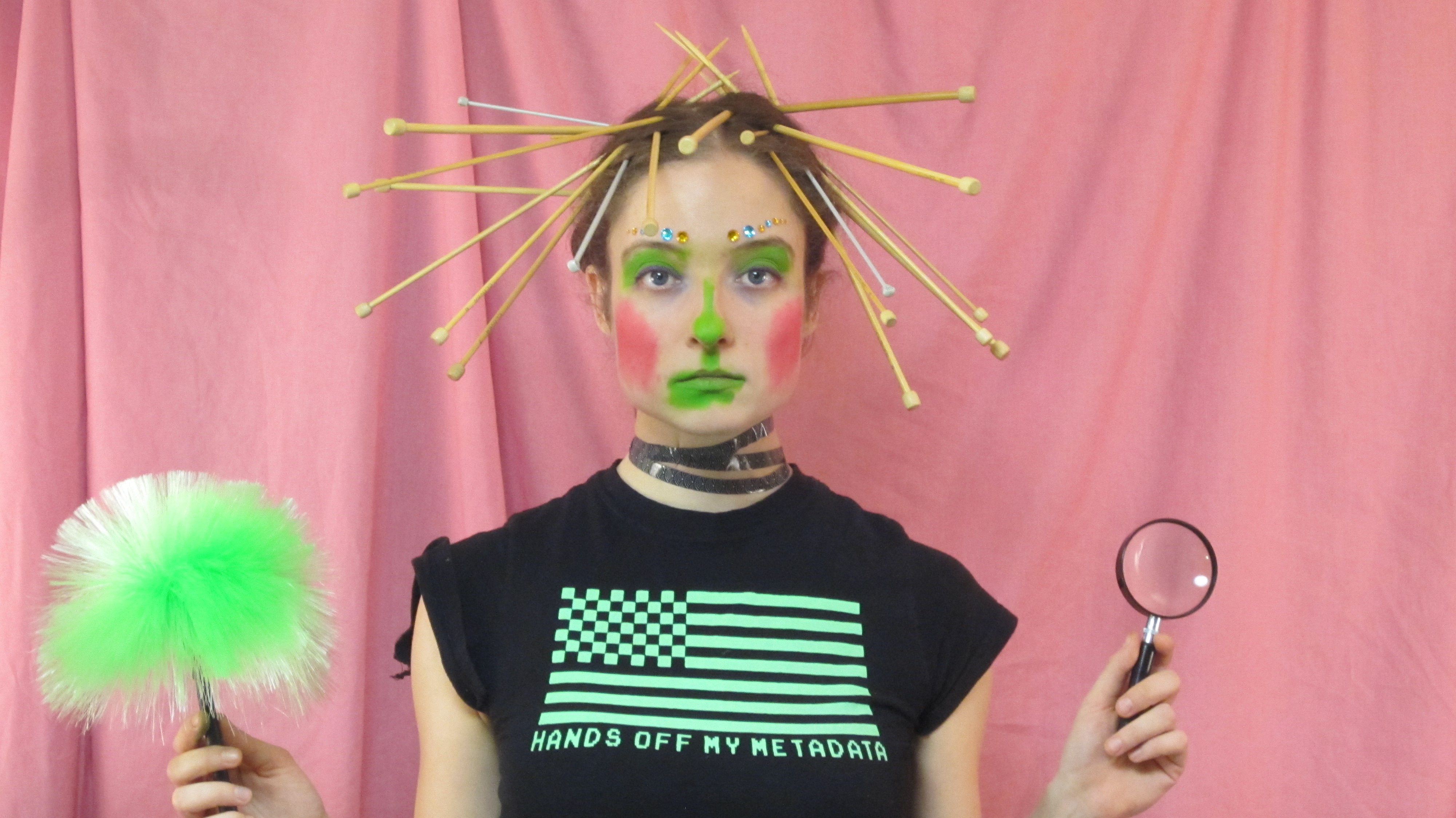“Stuck in Cyberspace” - The Thesis (2015)
Abstract
Due to developing advances in international technology, modes of engagement within the global sphere are quickly changing. The rise of the Internet has provided opportunities for diffuse access to the power of communication platforms, but it has also reinforced the infrastructure of centralized surveillance. These advanced technologies serve to further polarize the societal tension between grassroots liberation and hierarchical control.
The following theoretical thesis investigates the various degrees of impact these changes create in various social and political spheres, highlighting the relative nature of truth and the fluidity of social power.
Ultimately, this thesis serves as the beginning of a discussion, rather than the conclusion of a formal research project.
Essay 1. I Can’t Find My Cell Phone, I Can Hardly Breathe: Omnipresent Accessibility and the Fear of Missing Out
Exploration of the creeping effects of these sneaky devices (increasingly tiny and seemingly inescapable) in our pockets and bags. Does constant connectivity bring us closer to one another, or render our connections more artificial?
- “phantom text syndrome” and the impact of devices on our physical experiences
- social researchers suspect Facebook makes people unhappy and narcissistic
- what happened when Paul Miller, Patrick Allan, and Patton Oswalt took breaks from the Internet
Essay 2. Shapeshift into Cyborgs: Embedded Technology and Automated Environments
The concept of the ‘technological unconscious’ [David Beer] refers to the fact that as we universally adapt to new technology, it becomes nearly invisible in our daily lives. Does the development of new tech lean toward a net positive, or toward a dangerous creep of consumer data collection?
- the swift advance of the Internet of Things, machine learning, and bioinformatics
- wasting “timeless time” scrolling through endless websites
- code is not just communication, it’s action
Essay 3. Google and Wikipedia: ‘Feeling Lucky’ or ‘Citation Needed’?
As we increasingly use the Internet as a central source of knowledge, and indeed, almost as a substitute for short-term memory, it’s crucial to investigate the validity of mainstream sources of information – most prominently, Google Search and Wikipedia.
- the Google-Wikipedia feedback loop
- Paulo Freire and critical consciousness
- checking sources and avoiding the echo-chamber effect
Essay 4. A Dirty Shame: Labelling, Deviance, and the New Media Spotlight
Visibility and public shaming have been drastically increased by the rise of social media. Fame and infamy can be instantaneous, and their subjects have little control over the trajectory of their public images. How far into the extreme might this go?
- The rabid pursuit of attention: “Like my status!!!!”
- “Has Justine Landed Yet?” and the “Right to Be Forgotten”
- Trolls and doxxing: the danger of the Internet crossing over into reality
Essay 5. Transmit or Get Off the Net: Apathy Versus Collaboration in the Internet Age
A lot of people “talk the talk” in terms of supporting political and social causes online, but too often this gets limited to “slacktivism.” This passive participation is exacerbated by the skewed representation of vocal Internet users in terms of demographic diversity. How can we utilize the Internet’s capabilities to yield positive outcomes from people’s genuine desires to participate?
- Clicking “Like” is not the same as taking action
- As long as Silicon Valley lacks diversity, so will the technology it produces
- Can we “meme-ify” and gamify truly effective activist strategies?
Essay 6. Discipline and Index: The Tension Between Control and Freedom on the Internet
Since the origins of information and communication technology, there has been both collaboration and competition between government interests, academic exploration, and hobbyist innovation. As systematic surveillance increases in scope, this tension is coming to a boil, as “hackers” are vilified, and control over the internet is centralized.
- Government control from ARPANET to RFID chips and IMSI-catchers
- White Hat and Black Hat hacktivism: bug bounties, Wikileaks, ransomware
- 4chan, anonymity, and drawing lines in the sand
Essay 7. The Sharing Economy: From Each According to Their Need, To Each According to Their Ability
Advanced technology has long been hailed as a potential means to pursue equitable access to resources and a universally improved quality of life. The so-called “sharing economy” provides opportunities for cooperative trade and labour, but it also reduces protection of worker rights and stable employment.
- The imprecise distinction between “employers” and “platform providers”
- The illusion of corporate benevolence – what does “Don’t Be Evil” really mean?
- Users producing data and media content for free, freelancers opening themselves up to risks and liabilities
Essay 8. Jugaad-a Be Kidding Me: Re-learning Resourceful Innovation From the Global South
The population Global South, often referred to in terms of “developing” or “Third World” nations, consistently exhibits innovative use of limited resources [called jugaad in Hindi-Urdu], particularly in the age of cell phone technology. By examining the creativity of these “hacks,” we can begin to envision the near future of grassroots progress in technology.
- Global South community values parallel the foundational philosophy of Free and Open Source Software
- Creative use of mobile technology in Africa for microfinance, health and safety tracking, and disseminating education
- Innovation lies in the “aha” moment, which is necessitated in situations of relative poverty
